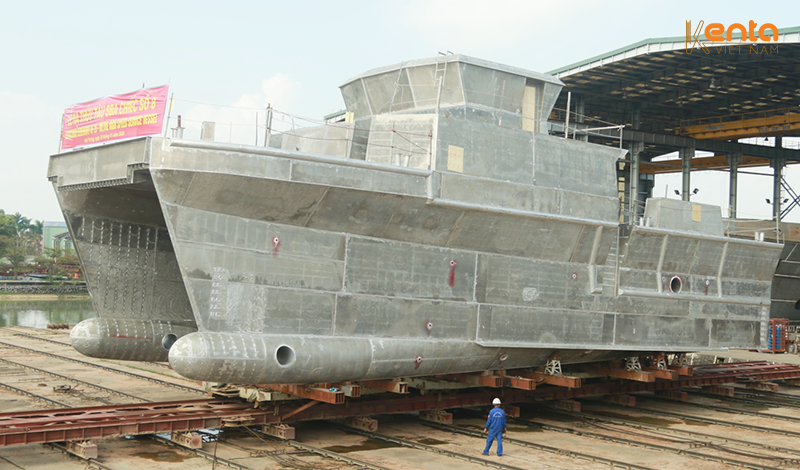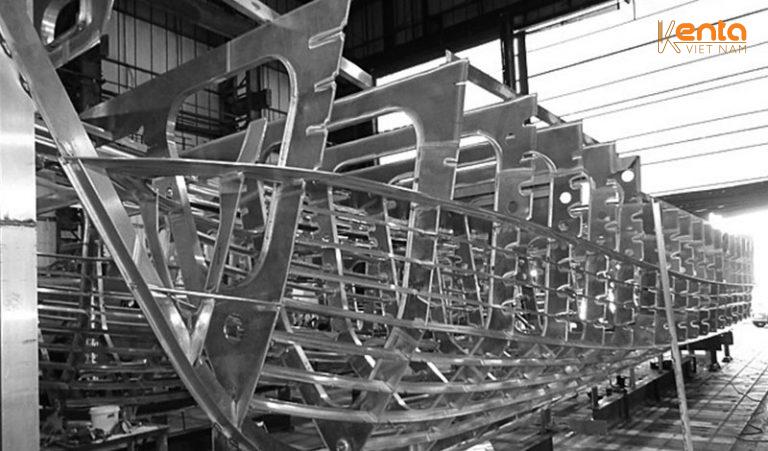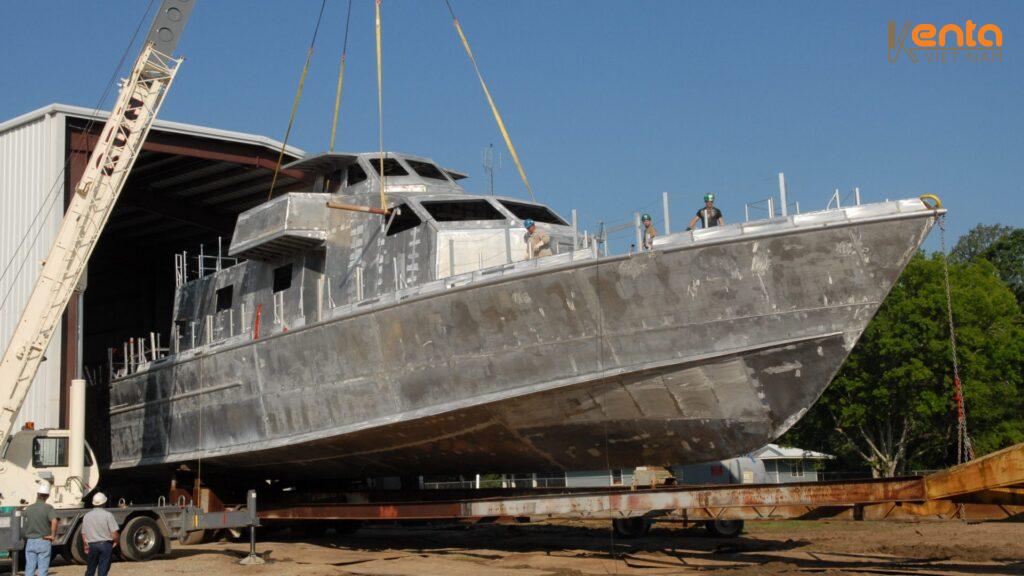Knowledge, Technology
Can aluminum sheets be used for ships and boats?
Material is the first thing people consider when starting to build a ship. Whether it's a small canoe or a fishing boat, a pleasure craft or a passenger ferry, what the vessel is made of not only affects its durability but also determines operating costs and lifespan. In recent years, aluminum – especially aluminum sheets – has gradually become a popular choice in the shipbuilding industry. But can aluminum sheets be used for ships and boats? This article will help you find the answer in the clearest and most understandable way.
Aluminum sheets and the shipbuilding industry are a familiar combination.
In the past, when it came to shipbuilding, people immediately thought of steel, wood, or composite. These familiar materials were found in all large and small shipyards. But in the last decade or so, aluminum – especially aluminum sheets – has started to be mentioned more often. Not because it's new, but because professionals in the field have begun to re-evaluate its true value.
Aluminum sheets are significantly lighter than steel. This means that ships will run faster, consume less fuel, and operate more flexibly. For ships that require speed, such as canoes, speedboats, or short-haul tourist boats – this factor is a huge advantage. But most importantly, aluminum sheets have natural corrosion resistance, especially in seawater environments – where everything oxidizes faster than usual.
Therefore, aluminum sheets can not only be used for ships and boats – but are also gradually becoming a preferred, even dominant, choice in some segments of the marine industry.
Why are aluminum sheets suitable for marine environments?
Anyone who has worked in the shipbuilding industry knows that seawater is a "silent corrosive agent." It's not noisy but quietly erodes everything, from propellers to hulls, if the material doesn't have oxidation resistance. Steel can be painted, protected with a coating, but it still rusts over time. Wood can be beautiful but requires frequent maintenance. Meanwhile, aluminum – especially aluminum alloy series like 5083 – can form a protective film on its surface, preventing seawater from penetrating deep into the structure.
The interesting thing is that when this oxide layer is scratched, aluminum continues to regenerate a new protective layer. Thanks to this, even in constantly humid and salty conditions, an aluminum hull maintains its long-term durability and stability without complex maintenance.

At Kenta Vietnam, imported 5083 aluminum sheets – specifically used for the marine industry – are currently trusted by many domestic shipbuilders. Not only for their corrosion resistance, but also for their high hardness and mechanical strength, which helps them withstand impacts and torsional forces during operation at sea.
Is aluminum strong enough to build ships?
One of the biggest concerns is: "Aluminum is so light, is it strong enough to withstand waves, wind, and collisions?" In fact, pure aluminum is soft – that's true. But in the shipbuilding industry, pure aluminum is not used; instead, aluminum alloys are used, with added magnesium, manganese, silicon, etc., to increase hardness, tensile strength, and crack resistance.
Aluminum sheet 5083, for example, is specifically designed for marine applications. When comparing its strength with stainless steel of the same thickness, 5083 aluminum can achieve 70 – 80% of the strength but is 30 – 40% lighter. Thanks to this, ships made of aluminum are not only durable but also fuel-efficient, reduce load, and are easy to control.
At Kenta, in addition to 5083, there are other aluminum series such as 5052 – suitable for auxiliary parts, decks, cabins, etc. With diverse sizes (1200×2400, 1500×3000, 2000x6000mm) and thicknesses from 1mm to 75mm, designing and fabricating ships with aluminum sheets at the workshop becomes much more flexible and time-saving.
Is processing, cutting – welding aluminum sheets complicated?
If in the past, many workshops were hesitant about aluminum because they thought it was difficult to cut and weld – now, that is no longer an obstacle. Aluminum sheets can be laser cut, CNC cut, or plasma cut depending on the thickness and design requirements. With modern cutting tools, the cut edges are very smooth, with few burrs, which reduces finishing time.
Regarding welding,Aluminum sheets can be TIG or MIG welded provided the correct welding wire (ER 5356 – ER 4043), suitable shielding gas, and good control over the surface cleaning process before welding are used. This means that: if the correct input materials are chosen, the welder can easily operate without too much difficulty.

At Kenta, we not only supply aluminum sheets for shipbuilding, but we also help customers choose the correct aluminum welding wire, advise on parameters, and connect them with fabrication workshops that have practical experience in the shipbuilding industry. You don't have to waste time on trial and error.
Who are aluminum sheets for boats and ships suitable for?
Not everyone builds large ocean-going vessels. But the demand for aluminum canoes, tourist boats, passenger boats, or cargo barges is increasing, especially in riverside provinces or coastal areas. These vehicles do not require overly complex structures, but still demand durability, stability, and cost-effective operation.
For those working in eco-tourism, waterway transport services, or even in aquaculture – aluminum sheets are a material worth considering. Because you are not just investing once, but investing for stable use for many years without having to worry about anti-rust paint or constantly replacing damaged materials.
Aluminum sheets are not only suitable for ships but also a smart choice.
The question "Can aluminum sheets be used for ships and boats?" should now have a clear answer. Not only can they be used, but aluminum sheets – especially corrosion-resistant aluminum alloys like 5083, 5052 – are also becoming a key material in the modern shipbuilding industry.
At Kenta Vietnam, we not only supply standard aluminum sheets, but also understand the actual needs of each customer group: from small fishing boat builders to businesses manufacturing tourist canoes. With a large warehouse, many choices of sizes – thicknesses – and on-site technical support, Kenta is always ready to accompany you every step of the way.




















